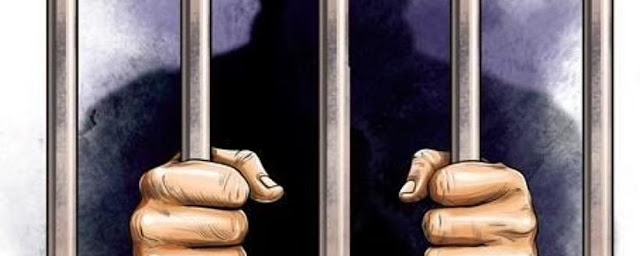How To Get Bail In A False Sc/St Case?
The Supreme
Court observed in Subhash Kashinath Mahajan v. State of Maharashtra, (March
2018), that the provisions of The Scheduled Castes and The Scheduled Tribes
(Prevention Of Atrocities) Act, 1989 (SC/ST act), which provided punishment for
atrocities against people belonging to SCs and STs, were being misused by them
against the general public (for example, by making false accusations/charges).
Must lessen the strict effect of this statute, the SC established the following
requirements to be met before filing any cases under it. The assistance of the Best Lawyer In Delhi
can help in such matters.
The Act has
been abused to submit fictitious complaints to spread caste animosity, the
supreme court observed, which has been acknowledged as a failure to blur caste
distinctions.
If the
Atrocities Act is not brought into compliance, it may even "perpetuate
casteism," and the court must step in to prevent the "false
implication of innocent persons on caste lines."
Observations of Supreme Court:
- The current proceedings are annulled since there has been a blatant abuse of the legal system.
- There is no absolute bar against the issue of anticipatory bail in situations under the Atrocities Act if there is no prima facie case established if the complaint is considered to be prima facie mala fide upon judicial scrutiny.
- A public servant may only be arrested with the appointing authority's approval, and a nonpublic servant may only be arrested with the S.S.P.'s approval, which may be granted in appropriate cases if thought necessary for reasons documented. This is owing to the well-documented abuse of the arrest statute in cases under the Atrocities Act. The Magistrate must carefully analyse such grounds before allowing further detention.
- The DSP in question may conduct a preliminary investigation to determine if the allegations support a case under the Atrocities Act and that they are not baseless or motivated in order to prevent the erroneous involvement of an innocent person.
- Any breach of instructions will result in disciplinary action and/or contempt charges.
The
aforementioned guidelines are hypothetical. However, as a result of this
decision, there were numerous protests and demonstrations that spread over the
entire nation as a result of the decision. Therefore, the Parliament introduced
an amendment to this legislation that essentially overturned this ruling in
order to reverse the ratio of this judgement.
Features of the Act:
- Creation of novel offences that don't appear in either the Protection of Civil Rights Act of 1955 or the Indian Penal Code (IPC).
- Crimes committed against members of the Scheduled Castes and Tribes are punished.
- It gives victims specific rights and protections.
- For quicker case resolution, it establishes Special Courts and Special Public Prosecutors.
- Committing crimes just with certain people (by non-SCs on SCs and non-STs on STs).
- Punishment for non-SC/ST public employees who fail to perform their obligations.
- Refusal to grant anticipatory bail
- Provides victims of atrocities or their legitimate heirs with compensation, relief, and rehabilitation.
- System of mandatory and recurring monitoring at the district, state, and federal levels.
- The location of areas vulnerable to atrocities.
Offences
under the Act are not subject to bail unless the Magistrate receives a bail
application. In the event that any crime was committed in violation of the
Atrocities Act's provisions, you may submit a bail application to the Sessions
Court. The Court of Session has jurisdiction over the offences.
In the event
that the Sessions Court denies the accused's request for bail, the accused may
file a petition with the High Court. In accordance with a recent change, an
accused person seeking regular bail must submit a criminal appeal to the High
Court under section 14 (A) 2 of the Prevention of Atrocities Act. The Top Lawyers In Delhi
can be contacted to seek assistance in getting bail under the Act.z
Drawbacks of the Act:
- Low rate of conviction.
- Fewer victims have been rehabilitated.
- Low awareness of the various legal remedies and provisions among the intended beneficiaries.
- Only a small number of jurisdictions have put preventive measures in place to stop
- certain crimes.
- The act is one of India's most frequently misapplied laws.
- Many take this action to make amends or to malign an innocent person.
Recently, The Allahabad High Court issued an important ruling in which it mandated that bail requests under the SC/ST Act be presented to the court seven days after a notice is given to the government attorney. A single bench of Justice Ajay Bhanot issued a number of directives on the organisation and method for serving notice on the bail pleas under the Act as well as the schedule to be followed, noting that bail applications should be processed quickly and presented to the court for hearing in a reasonable and definite time frame. To defend your case under the SC/ST Act, you can contact the Top Lawyers In Mumbai.
Visit Us: - https://www.leadindia.law
Call Us: - +91-8800788535
Email: care@leadindia.law
YouTube: - https://www.youtube.com/c/LeadIndiaLawAssociates
Facebook: - https://www.facebook.com/leadindialaw
LinkedIn: - https://www.linkedin.com/company/76353439
Twitter: - https://twitter.com/leadindialaw
Pinterest: - https://in.pinterest.com/lawleadindia
Instagram: -https://www.instagram.com/leadindialawofficial
Top Lawyers In Delhi, Top Lawyers In Mumbai, Best Lawyer In Delhi




Comments
Post a Comment